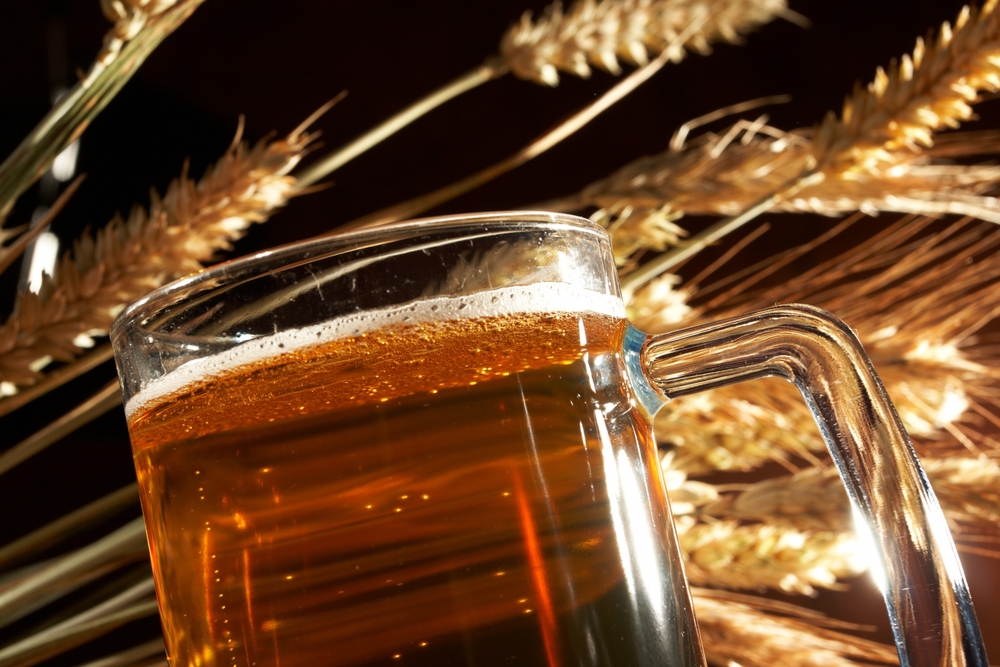Learn more about best beer for your health.
Beer has long been enjoyed as a popular beverage, whether consumed socially, accompanying a meal, or winding down after a long day. In recent years, there has been growing interest in understanding the health benefits of various types of beer, as more individuals look to make informed choices about their alcoholic beverages. This article aims to explore some of the best beers for your health that you can enjoy without feeling guilty.
When evaluating the health benefits of beer, it’s important to consider factors such as calories, carbohydrates, and alcohol content. Thankfully, there are numerous options available on the market today that cater to these criteria. From light and crisp offerings with lower calorie counts to darker brews boasting antioxidant-rich profiles, there is a healthy beer choice to fit any palate.
In the following sections, we will delve into more detail on some of the healthiest beer options available, covering various styles and profiles to help you make an informed decision about the best beer to enjoy for your health. So, let’s raise a glass to discovering beers that can potentially benefit our well-being while satisfying our taste buds.
Table of Contents
Beer and Health Benefits
Antioxidants
Beer contains antioxidants, which are compounds that help protect your body against free radicals and oxidative stress. Some research suggests that beer might have antioxidant properties similar to red wine, though more studies are needed to confirm this. Darker beers are typically higher in antioxidants due to the roasting process of the grains used to make them. Examples of beers rich in antioxidants include stouts, porters, and some darker ales.
Anti-Inflammatory Properties
Beer contains compounds known as polyphenols, which have anti-inflammatory properties. These can help reduce inflammation in your body, potentially reducing the risk of chronic diseases such as heart disease and diabetes. A study published by NBC News reported that moderate beer consumption may have a positive effect on inflammation levels, though more research is needed to determine the specifics.
B Vitamins
One of the lesser-known health benefits of beer is that it contains a variety of B vitamins, including B6, B12, and folic acid. These are essential nutrients that help support various bodily functions, such as energy production, nerve function, and the synthesis of DNA. According to WebMD, beer is a source of B vitamins, although the amounts vary depending on the type of beer and brewing process.
Heart Health

Moderate beer consumption may have some benefits for heart health. Healthline states that light to moderate beer intake is linked to a reduced risk of heart disease, the leading cause of death in the United States. This is thought to be due to a combination of factors, including the antioxidants and anti-inflammatory compounds found in beer, as well as its potential effects on blood cholesterol levels.
Remember, while beer can offer some health benefits, it is essential to consume it in moderation. Excessive alcohol consumption can lead to a host of health problems, so it’s crucial to strike a balance and stay informed about the healthiest beer options.
Selecting the Healthiest Beer
When choosing a beer that’s best for your health, it’s essential to consider factors such as nutrition, taste, and weight. In this section, we will discuss the different types of healthier beer options available, focusing on light beers, low-calorie options, and low-carb choices.
Light Beers
Light beers are typically lower in calories and alcohol content compared to regular beers. They are an excellent option for those looking to maintain a healthier lifestyle while still enjoying a refreshing beverage. One popular light beer choice is the Sam Adams Light Lager, which offers a tasty, lighter alternative to the classic Sam Adams flavor profile.
Low-Calorie Options
Keeping an eye on calorie intake is essential for those who want to manage their weight effectively. Fortunately, several low-calorie beer choices provide great taste without packing on the pounds. For instance, Budweiser’s Select 55 is one of the lowest calorie options available, with just 55 calories per serving. Another excellent option is Corona Premier, which offers a crisp flavor profile and only 90 calories per serving.
Some notable low-calorie beer options include:
- Budweiser Select 55 (55 calories)
- Corona Premier (90 calories)
- Miller Lite (96 calories)
Low-Carb Choices
If you’re following a low-carb diet, you’ll also want to find beers that align with your nutritional goals. Grolsch Premium Pilsner is a solid choice, with only 2.5g of carbs per serving while still offering a 5% ABV. Another low-carb beer to consider is Heineken Silver, a lager designed to appeal to the American palate.
Some low-carb beer options worth trying are:
- Grolsch Premium Pilsner (2.5g carbs)
- Heineken Silver (unknown carb content, but advertised as low-carb)
- Corona Premier (2.6g carbs)
When selecting the healthiest beer, consider the factors that matter most to you, such as taste, nutritional content, and weight. The options above provide a good starting point in your search for a beer that suits your health-conscious needs.
Alcohol Content and Consumption
ABV and IBU
Alcohol content in beer is typically measured by Alcohol by Volume (ABV), which indicates the percentage of alcohol in the beer. International Bitterness Units (IBU) measure the bitterness level of a beer, but it is important to note that it does not directly correlate with alcohol content.
There’s a wide range of ABV in different types of beer:
- Light beer: 2.5%-4.2% ABV
- Lager: 4%-5% ABV
- Ale: 4%-7% ABV
- Stout: 5%-10% ABV
Be mindful of the ABV when choosing a beer, as higher alcohol content can lead to increased alcohol consumption and its associated risks.
Moderate Alcohol Consumption
The 2020-2025 Dietary Guidelines for Americans suggest a moderate amount of alcohol consumption, defined as one drink per day for women and two drinks per day for men. In beer, one drink consists of 12 ounces.
Some potential health benefits of moderate alcohol consumption include:
- Reducing the risk of developing and dying from heart disease
- Possibly reducing the risk of ischemic stroke
- Some nutritional benefits, including B vitamins and antioxidants in certain types of beer
However, excessive alcohol consumption can lead to numerous health risks, such as:
- Increased risk of various types of cancer
- Liver disease
- Addiction
- Accidents and injuries
It is essential to consume alcohol responsibly and within the recommended limits to minimize any negative effects on your health. Keep in mind the specific ABV of the beer you are consuming and adjust your intake accordingly. While moderate alcohol consumption may be associated with some health benefits, it should not be seen as a primary means of promoting health, and the potential risks should always be considered.
Beer Ingredients and Nutrients
Beer is produced using four main ingredients: water, barley, hops, and yeast. These ingredients contribute to the overall nutrient content of beer, which varies depending on the specific recipe and brewing process.
Protein and Carbohydrates
Barley, the primary grain utilized in beer production, contains carbohydrates and proteins essential for the brewing process. Carbohydrates provide fermentable sugars for yeast, while proteins contribute to the beer’s body and mouthfeel. The average 12-ounce serving of beer contains around 0.9 grams of protein and can vary in carbohydrate content depending on the type of beer. For example, a light beer like Michelob ULTRA Amber contains 3.2 grams of carbohydrates, while a darker beer like Negra Modelo Dark Beer has 16 grams of carbohydrates.
Minerals
Beers contain essential minerals such as iron, phosphorus, calcium, potassium, magnesium, and manganese. These minerals are derived from the grains, hops, and yeast used in the brewing process. Each mineral plays a vital role in maintaining overall health, such as supporting bone health (calcium and phosphorus), muscle function (magnesium and potassium), and red blood cell production (iron and manganese).
Vitamins
Beer also contains B vitamins, which are essential for various metabolic processes in the body. These vitamins are a result of beer being made from cereal grains and yeast. Beers can contain small amounts of thiamine, and vitamin B6.
In summary, beer’s nutrient content comes from its main ingredients: barley, hops, and yeast. It contains varying amounts of protein and carbohydrates, depending on the specific beer type, as well as essential minerals and vitamins that contribute to overall health. However, it is important to remember that excessive beer consumption can have negative health effects, so moderation is key.
Comparison with Other Beverages

Beer vs Wine
When comparing beer with wine, the key differences lie in their alcohol content, calorie count, and health benefits.
- Alcohol content: Generally, beer has a lower alcohol content (ranging from 4% to 7% ABV) compared to wine (12% to 15% ABV). This means that when consumed in moderation, beer is likely to have a lower overall alcohol intake.
- Calorie count: The calorie count in beer is typically lower than in wine. For instance, a 12-ounce serving of beer may contain around 150 calories, while a 5-ounce serving of wine may have about 100 to 200 calories depending on the type of wine (e.g., red wine or white wine).
- Health benefits: Both beer and wine have certain health benefits when consumed in moderation. Beer is a source of antioxidants, vitamins, and minerals, while wine, particularly red wine, contains beneficial antioxidants like resveratrol and flavonoids.
Beer vs Coolers
Compared to coolers, beer has some advantages and disadvantages related to their nutritional content and health effects.
- Nutritional content: Beer usually has a higher nutrient content than coolers, as beer can contain vitamins, minerals, and antioxidants with potential health benefits. On the other hand, coolers often combine alcohol with sugary and artificially flavored beverages, which can lead to a higher calorie and sugar intake.
- Calories and sugar: Coolers can contain significantly more calories and sugar than beer, depending on the brand and product. The calorie range for most coolers falls between 100 and 250 calories per serving, with sugar content varying greatly. In contrast, beer typically contains between
Impact on Weight and Health Conditions
Weight Gain and Loss
Drinking beer in moderation can be part of a healthy lifestyle, but excessive consumption may lead to weight gain. Darker and more hoppy beers tend to be higher in calories, ranging between 150 and 200 per pint, and higher in carbs as well source.
Conversely, lighter beers, like Grolsch Premium Pilsner, have lower calorie (only 165) and carb (2.5g) content, making them a better choice for those who want to control their weight while still enjoying beer source.
Diabetes
Moderate alcohol consumption has been linked to a lower risk of developing type 2 diabetes. However, excessive drinking can have the opposite effect, increasing the risk of developing the condition source.
For people who already have diabetes, it’s important to be cautious about alcohol consumption, as it can interfere with blood sugar control. This is especially true for beer, as its carb content can cause blood sugar levels to spike.
Remember to consult a healthcare professional for personalized advice about the impact of beer consumption on weight gain, diabetes, and other health conditions.
Specific Beer Recommendations
Guinness Draught
Guinness Draught is a classic Irish stout known for its rich, creamy texture and unique flavor. With only 125 calories per 12 ounces and 9.6 grams of carbs, this beer is a relatively healthy choice for those seeking a darker and more flavorful brew source.
Yuengling Traditional Lager
Yuengling Traditional Lager is a popular American amber lager with a smooth taste and moderate calorie count. It contains approximately 128 calories per 12 ounces and 12 grams of carbs, making it a decent option for those looking for a lighter alternative without sacrificing taste.
Corona Premier
Corona Premier is a light, crisp beer designed for those seeking low calories and carbs. With only 90 calories and 2.6 grams of carbs per 12 ounces, it is a healthier choice for those looking to enjoy a refreshing beer.
Sierra Nevada Pale Ale
Sierra Nevada Pale Ale is a popular craft beer known for its hoppy flavor and balanced bitterness. While slightly higher in calories at 175 per 12 ounces, it’s still a reasonable option for those looking for a more flavorful and aromatic beer without an excessive calorie count.
Blue Moon
Blue Moon is a Belgian-style wheat ale with a slight twist of citrus flavor. It contains 171 calories per 12 ounces and 14 grams of carbs, offering a healthy option for those who enjoy a crisp, refreshing brew with a touch of sweetness.
Corona Extra
A lighter alternative to Corona Premier, Corona Extra contains 99 calories and 4.8 grams of carbs per 12 ounces. With its classic crisp taste, it’s suitable for those seeking a lighter beer without compromising on flavor.
Coors Light
Coors Light is a popular light beer with a mild taste and relatively low calorie content. With 102 calories per 12 ounces and 5 grams of carbs, this beer is a sensible choice for those looking to enjoy a lighter option while watching their calorie intake.
Busch
Busch is an American-style lager known for its smooth, easy-drinking taste. At 114 calories per 12 ounces and 6.9 grams of carbs, it’s a moderately healthy choice for those seeking a refreshing beer without a significant calorie impact.


